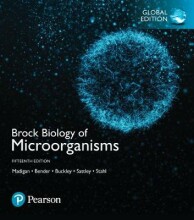Microbial Symbioses with Humans - Overview of the Human Microbiome
7 important questions on Microbial Symbioses with Humans - Overview of the Human Microbiome
What is the human microbiome, and why is it essential for our existence?
What are the clinical benefits of knowing a person's microbiome, and what challenges exist in understanding cause-and-effect relationships?
How has advanced nucleic acid sequencing contributed to studying the human microbiome, and why is cultivation still important?
- Higher grades + faster learning
- Never study anything twice
- 100% sure, 100% understanding
Describe the snapshot of the human microbiome in terms of bacterial composition across heavily colonized body sites.
What is the individuality and resilience of microbial communities in the human microbiome, and how do disturbances affect them?
Why is the gut microbiome highlighted, and how does it influence an individual's overall health?
What role does the human microbiome play in the development of the immune system and overall health later in life?
The question on the page originate from the summary of the following study material:
- A unique study and practice tool
- Never study anything twice again
- Get the grades you hope for
- 100% sure, 100% understanding
































